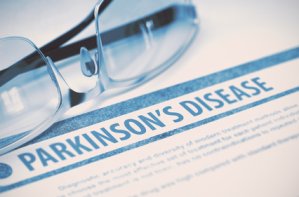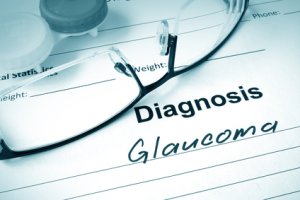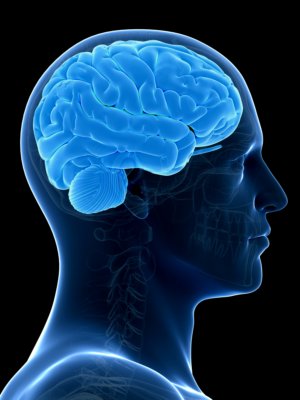afterLoad (456.22KB) (2.58ms)
afterInitialise (1.27MB) (59.57ms)
afterRoute (840.55KB) (26.46ms)
beforeRenderComponent com_tags (21.28KB) (301μs)
afterRenderComponent com_tags (1.74MB) (199ms)
afterDispatch (63.02KB) (7.98ms)
beforeRenderRawModule mod_articles_category (READ MORE...) (423.86KB) (33.35ms)
Before Access::preloadComponents (all components) (50.9KB) (4.24ms)
After Access::preloadComponents (all components) (103.05KB) (4.57ms)
Before Access::getAssetRules (id:8 name:com_content) (840B) (22μs)
After Access::getAssetRules (id:8 name:com_content) (7.05KB) (52μs)
afterRenderRawModule mod_articles_category (READ MORE...) (3.9KB) (233ms)
beforeRenderRawModule mod_custom (BOOST YOUR IMMUNE DEFENSE) (6.45KB) (44μs)
afterRenderRawModule mod_custom (BOOST YOUR IMMUNE DEFENSE) (3.8KB) (257μs)
beforeRenderRawModule mod_tags_popular (Search) (2.36KB) (16μs)
afterRenderRawModule mod_tags_popular (Search) (9.77KB) (198ms)
beforeRenderRawModule mod_custom (Get additionel and more detailed knowledge ) (816B) (45μs)
afterRenderRawModule mod_custom (Get additionel and more detailed knowledge ) (1.55KB) (69μs)
beforeRenderRawModule mod_custom (Overview of vitamins, minerals, and essential fatty acids) (768B) (13μs)
afterRenderRawModule mod_custom (Overview of vitamins, minerals, and essential fatty acids) (960B) (24μs)
beforeRenderRawModule mod_custom (Q10 goes by many names) (608B) (9μs)
afterRenderRawModule mod_custom (Q10 goes by many names) (928B) (19μs)
beforeRenderRawModule mod_custom (Check this before you buy a Q10 product) (752B) (9μs)
afterRenderRawModule mod_custom (Check this before you buy a Q10 product) (944B) (18μs)
beforeRenderRawModule mod_custom (Are you taking supplements) (736B) (10μs)
afterRenderRawModule mod_custom (Are you taking supplements) (1.03KB) (18μs)
beforeRenderRawModule mod_custom (Weight loss that works) (736B) (8μs)
afterRenderRawModule mod_custom (Weight loss that works) (1.03KB) (19μs)
beforeRenderRawModule mod_custom (Antiaging) (720B) (1.03ms)
afterRenderRawModule mod_custom (Antiaging) (912B) (42μs)
beforeRenderRawModule mod_menu (Are you getting enough vitamins and minerals?) (2.5KB) (15μs)
afterRenderRawModule mod_menu (Are you getting enough vitamins and minerals?) (22.39KB) (728μs)
beforeRenderRawModule mod_menu (The key to increased well-being) (736B) (19μs)
afterRenderRawModule mod_menu (The key to increased well-being) (17.83KB) (1.31ms)
beforeRenderRawModule mod_menu (Did you know.....) (720B) (24μs)
afterRenderRawModule mod_menu (Did you know.....) (25.52KB) (394μs)
beforeRenderRawModule mod_custom (Useful Links) (1.06KB) (15μs)
afterRenderRawModule mod_custom (Useful Links) (1.02KB) (35μs)
beforeRenderRawModule mod_custom (Chronic fatigue tied Alan to his bed but Q10 capsules saved him:) (244.28KB) (4.91ms)
afterRenderRawModule mod_custom (Chronic fatigue tied Alan to his bed but Q10 capsules saved him:) (1.06KB) (52μs)
beforeRenderModule mod_custom (Chronic fatigue tied Alan to his bed but Q10 capsules saved him:) (768B) (5μs)
afterRenderModule mod_custom (Chronic fatigue tied Alan to his bed but Q10 capsules saved him:) (1.3KB) (73μs)
beforeRenderRawModule mod_custom (Cholesterol-lowering without side effects:) (368B) (14μs)
afterRenderRawModule mod_custom (Cholesterol-lowering without side effects:) (1.06KB) (24μs)
beforeRenderModule mod_custom (Cholesterol-lowering without side effects:) (752B) (2μs)
afterRenderModule mod_custom (Cholesterol-lowering without side effects:) (1.28KB) (30μs)
beforeRenderModule mod_articles_category (READ MORE...) (20.93KB) (1.85ms)
afterRenderModule mod_articles_category (READ MORE...) (1.25KB) (62μs)
beforeRenderModule mod_custom (BOOST YOUR IMMUNE DEFENSE) (6.81KB) (15μs)
afterRenderModule mod_custom (BOOST YOUR IMMUNE DEFENSE) (1.28KB) (26μs)
beforeRenderModule mod_tags_popular (Search) (1.98KB) (12μs)
afterRenderModule mod_tags_popular (Search) (1.27KB) (22μs)
beforeRenderModule mod_custom (Get additionel and more detailed knowledge ) (1.17KB) (10μs)
afterRenderModule mod_custom (Get additionel and more detailed knowledge ) (1.3KB) (21μs)
beforeRenderModule mod_custom (Overview of vitamins, minerals, and essential fatty acids) (384B) (9μs)
afterRenderModule mod_custom (Overview of vitamins, minerals, and essential fatty acids) (1.31KB) (20μs)
beforeRenderModule mod_custom (Q10 goes by many names) (208B) (10μs)
afterRenderModule mod_custom (Q10 goes by many names) (1.27KB) (20μs)
beforeRenderModule mod_custom (Check this before you buy a Q10 product) (352B) (8μs)
afterRenderModule mod_custom (Check this before you buy a Q10 product) (1.28KB) (21μs)
beforeRenderModule mod_custom (Are you taking supplements) (352B) (9μs)
afterRenderModule mod_custom (Are you taking supplements) (1.28KB) (20μs)
beforeRenderModule mod_custom (Weight loss that works) (336B) (9μs)
afterRenderModule mod_custom (Weight loss that works) (1.27KB) (20μs)
beforeRenderModule mod_custom (Antiaging) (336B) (8μs)
afterRenderModule mod_custom (Antiaging) (3.77KB) (22μs)
beforeRenderModule mod_menu (Are you getting enough vitamins and minerals?) (2.13KB) (10μs)
afterRenderModule mod_menu (Are you getting enough vitamins and minerals?) (1.3KB) (20μs)
beforeRenderModule mod_menu (The key to increased well-being) (352B) (10μs)
afterRenderModule mod_menu (The key to increased well-being) (1.28KB) (19μs)
beforeRenderModule mod_menu (Did you know.....) (336B) (10μs)
afterRenderModule mod_menu (Did you know.....) (1.27KB) (1.03ms)
beforeRenderModule mod_custom (Useful Links) (1.44KB) (14μs)
afterRenderModule mod_custom (Useful Links) (1.27KB) (29μs)
beforeRenderRawModule mod_menu (Main Menu - English) (29.14KB) (798μs)
afterRenderRawModule mod_menu (Main Menu - English) (256.45KB) (3.75ms)
beforeRenderModule mod_menu (Main Menu - English) (720B) (7μs)
afterRenderModule mod_menu (Main Menu - English) (4.86KB) (71μs)
beforeRenderRawModule mod_languages (Sprogskift) (3.94KB) (22μs)
afterRenderRawModule mod_languages (Sprogskift) (22.56KB) (3.93ms)
beforeRenderModule mod_languages (Sprogskift) (720B) (8μs)
afterRenderModule mod_languages (Sprogskift) (5.31KB) (26μs)
beforeRenderRawModule mod_finder () (6.34KB) (15μs)
afterRenderRawModule mod_finder () (64.59KB) (5.09ms)
beforeRenderModule mod_finder () (704B) (7μs)
afterRenderModule mod_finder () (3.29KB) (42μs)
beforeRenderRawModule mod_custom () (6.62KB) (166μs)
afterRenderRawModule mod_custom () (22.66KB) (1.98ms)
beforeRenderModule mod_custom () (704B) (10μs)
afterRenderModule mod_custom () (1.23KB) (786μs)
beforeRenderRawModule mod_menu (Main Menu - English) (5.07KB) (148μs)
afterRenderRawModule mod_menu (Main Menu - English) (6.3KB) (840μs)
beforeRenderModule mod_menu (Main Menu - English) (720B) (4μs)
afterRenderModule mod_menu (Main Menu - English) (1.25KB) (53μs)
beforeRenderRawModule mod_languages (Sprogskift Mobil) (912B) (20μs)
afterRenderRawModule mod_languages (Sprogskift Mobil) (3.89KB) (3.26ms)
beforeRenderModule mod_languages (Sprogskift Mobil) (720B) (9μs)
afterRenderModule mod_languages (Sprogskift Mobil) (1.27KB) (70μs)
beforeRenderRawModule mod_finder () (2.3KB) (16μs)
afterRenderRawModule mod_finder () (6.29KB) (785μs)
beforeRenderModule mod_finder () (704B) (6μs)
afterRenderModule mod_finder () (1.23KB) (76μs)
beforeRenderRawModule mod_custom () (8.66KB) (213μs)
afterRenderRawModule mod_custom () (904B) (181μs)
beforeRenderModule mod_custom () (704B) (2μs)
afterRenderModule mod_custom () (2.43KB) (28μs)
beforeRenderRawModule mod_custom () (688B) (80μs)
afterRenderRawModule mod_custom () (896B) (94μs)
beforeRenderModule mod_custom () (704B) (3μs)
afterRenderModule mod_custom () (2.71KB) (20μs)
afterRender (365.61KB) (19.08ms)
| 1 x afterRenderRawModule mod_articles_category (READ MORE...) (3.9KB) (28.26%) | 233.16ms |
| 1 x afterRenderComponent com_tags (1.74MB) (24.16%) | 199.34ms |
| 1 x afterRenderRawModule mod_tags_popular (Search) (9.77KB) (24.04%) | 198.28ms |
| 1 x afterInitialise (1.27MB) (7.22%) | 59.57ms |
| 1 x beforeRenderRawModule mod_articles_category (READ MORE...) (423.86KB) (4.04%) | 33.35ms |
| 1 x afterRoute (840.55KB) (3.21%) | 26.46ms |
| 1 x afterRender (365.61KB) (2.31%) | 19.08ms |
| 1 x afterDispatch (63.02KB) (0.97%) | 7.98ms |
| 1 x afterRenderRawModule mod_finder () (64.59KB) (0.62%) | 5.09ms |
| 1 x beforeRenderRawModule mod_custom (Chronic fatigue tied Alan to his bed but Q10 capsules saved him:) (244.28KB) (0.6%) | 4.91ms |
| 1 x After Access::preloadComponents (all components) (103.05KB) (0.55%) | 4.57ms |
| 1 x Before Access::preloadComponents (all components) (50.9KB) (0.51%) | 4.24ms |
| 1 x afterRenderRawModule mod_languages (Sprogskift) (22.56KB) (0.48%) | 3.93ms |
| 1 x afterRenderRawModule mod_menu (Main Menu - English) (256.45KB) (0.45%) | 3.75ms |
| 1 x afterRenderRawModule mod_languages (Sprogskift Mobil) (3.89KB) (0.4%) | 3.26ms |
| 1 x afterLoad (456.22KB) (0.31%) | 2.58ms |
| 1 x afterRenderRawModule mod_custom () (22.66KB) (0.24%) | 1.98ms |
| 1 x beforeRenderModule mod_articles_category (READ MORE...) (20.93KB) (0.22%) | 1.85ms |
| 1 x afterRenderRawModule mod_menu (The key to increased well-being) (17.83KB) (0.16%) | 1.31ms |
| 1 x beforeRenderRawModule mod_custom (Antiaging) (720B) (0.13%) | 1.03ms |
| 1 x afterRenderModule mod_menu (Did you know.....) (1.27KB) (0.13%) | 1.03ms |
| 1 x afterRenderRawModule mod_menu (Main Menu - English) (6.3KB) (0.1%) | 840μs |
| 1 x beforeRenderRawModule mod_menu (Main Menu - English) (29.14KB) (0.1%) | 798μs |
| 1 x afterRenderModule mod_custom () (1.23KB) (0.1%) | 786μs |
| 1 x afterRenderRawModule mod_finder () (6.29KB) (0.1%) | 785μs |
| 1 x afterRenderRawModule mod_menu (Are you getting enough vitamins and minerals?) (22.39KB) (0.09%) | 728μs |
| 1 x afterRenderRawModule mod_menu (Did you know.....) (25.52KB) (0.05%) | 394μs |
| 1 x beforeRenderComponent com_tags (21.28KB) (0.04%) | 301μs |
| 1 x afterRenderRawModule mod_custom (BOOST YOUR IMMUNE DEFENSE) (3.8KB) (0.03%) | 257μs |
| 1 x beforeRenderRawModule mod_custom () (8.66KB) (0.03%) | 213μs |
| 1 x afterRenderRawModule mod_custom () (904B) (0.02%) | 181μs |
| 1 x beforeRenderRawModule mod_custom () (6.62KB) (0.02%) | 166μs |
| 1 x beforeRenderRawModule mod_menu (Main Menu - English) (5.07KB) (0.02%) | 148μs |
| 1 x afterRenderRawModule mod_custom () (896B) (0.01%) | 94μs |
| 1 x beforeRenderRawModule mod_custom () (688B) (0.01%) | 80μs |
| 1 x afterRenderModule mod_finder () (1.23KB) (0.01%) | 76μs |
| 1 x afterRenderModule mod_custom (Chronic fatigue tied Alan to his bed but Q10 capsules saved him:) (1.3KB) (0.01%) | 73μs |
| 1 x afterRenderModule mod_menu (Main Menu - English) (4.86KB) (0.01%) | 71μs |
| 1 x afterRenderModule mod_languages (Sprogskift Mobil) (1.27KB) (0.01%) | 70μs |
| 1 x afterRenderRawModule mod_custom (Get additionel and more detailed knowledge ) (1.55KB) (0.01%) | 69μs |
| 1 x afterRenderModule mod_articles_category (READ MORE...) (1.25KB) (0.01%) | 62μs |
| 1 x afterRenderModule mod_menu (Main Menu - English) (1.25KB) (0.01%) | 53μs |
| 1 x After Access::getAssetRules (id:8 name:com_content) (7.05KB) (0.01%) | 52μs |
| 1 x afterRenderRawModule mod_custom (Chronic fatigue tied Alan to his bed but Q10 capsules saved him:) (1.06KB) (0.01%) | 52μs |
| 1 x beforeRenderRawModule mod_custom (Get additionel and more detailed knowledge ) (816B) (0.01%) | 45μs |
| 1 x beforeRenderRawModule mod_custom (BOOST YOUR IMMUNE DEFENSE) (6.45KB) (0.01%) | 44μs |
| 1 x afterRenderRawModule mod_custom (Antiaging) (912B) (0.01%) | 42μs |
| 1 x afterRenderModule mod_finder () (3.29KB) (0.01%) | 42μs |
| 1 x afterRenderRawModule mod_custom (Useful Links) (1.02KB) (0%) | 35μs |
| 1 x afterRenderModule mod_custom (Cholesterol-lowering without side effects:) (1.28KB) (0%) | 30μs |
| 1 x afterRenderModule mod_custom (Useful Links) (1.27KB) (0%) | 29μs |
| 1 x afterRenderModule mod_custom () (2.43KB) (0%) | 28μs |
| 1 x afterRenderModule mod_custom (BOOST YOUR IMMUNE DEFENSE) (1.28KB) (0%) | 26μs |
| 1 x afterRenderModule mod_languages (Sprogskift) (5.31KB) (0%) | 26μs |
| 1 x afterRenderRawModule mod_custom (Overview of vitamins, minerals, and essential fatty acids) (960B) (0%) | 24μs |
| 1 x beforeRenderRawModule mod_menu (Did you know.....) (720B) (0%) | 24μs |
| 1 x afterRenderRawModule mod_custom (Cholesterol-lowering without side effects:) (1.06KB) (0%) | 24μs |
| 1 x Before Access::getAssetRules (id:8 name:com_content) (840B) (0%) | 22μs |
| 1 x afterRenderModule mod_tags_popular (Search) (1.27KB) (0%) | 22μs |
| 1 x afterRenderModule mod_custom (Antiaging) (3.77KB) (0%) | 22μs |
| 1 x beforeRenderRawModule mod_languages (Sprogskift) (3.94KB) (0%) | 22μs |
| 1 x afterRenderModule mod_custom (Get additionel and more detailed knowledge ) (1.3KB) (0%) | 21μs |
| 1 x afterRenderModule mod_custom (Check this before you buy a Q10 product) (1.28KB) (0%) | 21μs |
| 1 x afterRenderModule mod_custom (Overview of vitamins, minerals, and essential fatty acids) (1.31KB) (0%) | 20μs |
| 1 x afterRenderModule mod_custom (Q10 goes by many names) (1.27KB) (0%) | 20μs |
| 1 x afterRenderModule mod_custom (Are you taking supplements) (1.28KB) (0%) | 20μs |
| 1 x afterRenderModule mod_custom (Weight loss that works) (1.27KB) (0%) | 20μs |
| 1 x afterRenderModule mod_menu (Are you getting enough vitamins and minerals?) (1.3KB) (0%) | 20μs |
| 1 x beforeRenderRawModule mod_languages (Sprogskift Mobil) (912B) (0%) | 20μs |
| 1 x afterRenderModule mod_custom () (2.71KB) (0%) | 20μs |
| 1 x afterRenderRawModule mod_custom (Q10 goes by many names) (928B) (0%) | 19μs |
| 1 x afterRenderRawModule mod_custom (Weight loss that works) (1.03KB) (0%) | 19μs |
| 1 x beforeRenderRawModule mod_menu (The key to increased well-being) (736B) (0%) | 19μs |
| 1 x afterRenderModule mod_menu (The key to increased well-being) (1.28KB) (0%) | 19μs |
| 1 x afterRenderRawModule mod_custom (Check this before you buy a Q10 product) (944B) (0%) | 18μs |
| 1 x afterRenderRawModule mod_custom (Are you taking supplements) (1.03KB) (0%) | 18μs |
| 1 x beforeRenderRawModule mod_tags_popular (Search) (2.36KB) (0%) | 16μs |
| 1 x beforeRenderRawModule mod_finder () (2.3KB) (0%) | 16μs |
| 1 x beforeRenderRawModule mod_menu (Are you getting enough vitamins and minerals?) (2.5KB) (0%) | 15μs |
| 1 x beforeRenderRawModule mod_custom (Useful Links) (1.06KB) (0%) | 15μs |
| 1 x beforeRenderModule mod_custom (BOOST YOUR IMMUNE DEFENSE) (6.81KB) (0%) | 15μs |
| 1 x beforeRenderRawModule mod_finder () (6.34KB) (0%) | 15μs |
| 3 x beforeRenderModule mod_custom () (704B) (0%) | 15μs |
| 1 x beforeRenderRawModule mod_custom (Cholesterol-lowering without side effects:) (368B) (0%) | 14μs |
| 1 x beforeRenderModule mod_custom (Useful Links) (1.44KB) (0%) | 14μs |
| 1 x beforeRenderRawModule mod_custom (Overview of vitamins, minerals, and essential fatty acids) (768B) (0%) | 13μs |
| 2 x beforeRenderModule mod_finder () (704B) (0%) | 13μs |
| 1 x beforeRenderModule mod_tags_popular (Search) (1.98KB) (0%) | 12μs |
| 2 x beforeRenderModule mod_menu (Main Menu - English) (720B) (0%) | 11μs |
| 1 x beforeRenderRawModule mod_custom (Are you taking supplements) (736B) (0%) | 10μs |
| 1 x beforeRenderModule mod_custom (Get additionel and more detailed knowledge ) (1.17KB) (0%) | 10μs |
| 1 x beforeRenderModule mod_menu (Are you getting enough vitamins and minerals?) (2.13KB) (0%) | 10μs |
| 1 x beforeRenderModule mod_menu (The key to increased well-being) (352B) (0%) | 10μs |
| 1 x beforeRenderModule mod_menu (Did you know.....) (336B) (0%) | 10μs |
| 1 x beforeRenderModule mod_custom (Q10 goes by many names) (208B) (0%) | 10μs |
| 1 x beforeRenderRawModule mod_custom (Q10 goes by many names) (608B) (0%) | 9μs |
| 1 x beforeRenderRawModule mod_custom (Check this before you buy a Q10 product) (752B) (0%) | 9μs |
| 1 x beforeRenderModule mod_custom (Overview of vitamins, minerals, and essential fatty acids) (384B) (0%) | 9μs |
| 1 x beforeRenderModule mod_custom (Are you taking supplements) (352B) (0%) | 9μs |
| 1 x beforeRenderModule mod_languages (Sprogskift Mobil) (720B) (0%) | 9μs |
| 1 x beforeRenderModule mod_custom (Weight loss that works) (336B) (0%) | 9μs |
| 1 x beforeRenderRawModule mod_custom (Weight loss that works) (736B) (0%) | 8μs |
| 1 x beforeRenderModule mod_custom (Check this before you buy a Q10 product) (352B) (0%) | 8μs |
| 1 x beforeRenderModule mod_custom (Antiaging) (336B) (0%) | 8μs |
| 1 x beforeRenderModule mod_languages (Sprogskift) (720B) (0%) | 8μs |
| 1 x beforeRenderModule mod_custom (Chronic fatigue tied Alan to his bed but Q10 capsules saved him:) (768B) (0%) | 5μs |
| 1 x beforeRenderModule mod_custom (Cholesterol-lowering without side effects:) (752B) (0%) | 2μs |
 Vitamin B3 plays a crucial role in our brain and nervous system, and it is also important for our mental well-being. Studies suggest that lack of vitamin B3 increases the risk of dementia, Alzheimer’s disease, Parkinson’s disease, and schizophrenia. Moreover, epidemiological studies show that diets without vitamin B3 in them tend to cause aggression and an increased rate of homicide. Too little B3 can be caused by dietary shortages and environmental factors, but it also appears that some people have an increased need for the nutrient due to genetic variations and problems with utilizing the vitamin.
Vitamin B3 plays a crucial role in our brain and nervous system, and it is also important for our mental well-being. Studies suggest that lack of vitamin B3 increases the risk of dementia, Alzheimer’s disease, Parkinson’s disease, and schizophrenia. Moreover, epidemiological studies show that diets without vitamin B3 in them tend to cause aggression and an increased rate of homicide. Too little B3 can be caused by dietary shortages and environmental factors, but it also appears that some people have an increased need for the nutrient due to genetic variations and problems with utilizing the vitamin.








 According to a Japanese study, some people with Parkinson’s disease may find that coenzyme
According to a Japanese study, some people with Parkinson’s disease may find that coenzyme 
 Neurological disorders such as Alzheimer’s disease, dementia, depression, Parkinson’s disease, stroke, migraine, and fibromyalgia are rather common. These conditions are a result of imbalances in the nervous system, and they are often insidious. In a new review article that is published in Frontiers in Neuroscience, researchers have studied Q10’s role in the different neurological disorders. The reason for this is that
Neurological disorders such as Alzheimer’s disease, dementia, depression, Parkinson’s disease, stroke, migraine, and fibromyalgia are rather common. These conditions are a result of imbalances in the nervous system, and they are often insidious. In a new review article that is published in Frontiers in Neuroscience, researchers have studied Q10’s role in the different neurological disorders. The reason for this is that 
 Alcohol is one of the most compromising factors when it comes to public health, and alcohol abuse comes at an enormous cost, both to the individual and to society. A large alcohol consumption contributes as a factor to insidious dementia, but according to a new study from Taiwan, supplementing with
Alcohol is one of the most compromising factors when it comes to public health, and alcohol abuse comes at an enormous cost, both to the individual and to society. A large alcohol consumption contributes as a factor to insidious dementia, but according to a new study from Taiwan, supplementing with  Parkinson’s disease, also known as shaking palsy, is one of the most common chronic disorders among older people. There is no effective cure at this point, and the only way to address the disease is to suppress the symptoms but that does not treat the underlying cause. Even though most cases of Parkinson’s disease are sporadic, it turns out that the hereditary variants of the disease are linked to mutations in a particular gene. A team of scientists from University of the Basque Country in Spain has discovered that
Parkinson’s disease, also known as shaking palsy, is one of the most common chronic disorders among older people. There is no effective cure at this point, and the only way to address the disease is to suppress the symptoms but that does not treat the underlying cause. Even though most cases of Parkinson’s disease are sporadic, it turns out that the hereditary variants of the disease are linked to mutations in a particular gene. A team of scientists from University of the Basque Country in Spain has discovered that  Patients who have been diagnosed with Parkinson’s disease and who have low levels of
Patients who have been diagnosed with Parkinson’s disease and who have low levels of 
 A new study shows that patients with early stages of Parkinson’s disease may benefit from getting more
A new study shows that patients with early stages of Parkinson’s disease may benefit from getting more  Mice that are genetically predisposed to glaucoma may avoid the eye disease if
Mice that are genetically predisposed to glaucoma may avoid the eye disease if  Parkinson’s patients have less
Parkinson’s patients have less  There is a link between the widespread problems with
There is a link between the widespread problems with  Psychological disorders represent society’s single largest disease burden, and an increasing number of people are affected by it. There can be a variety of causes, and lack of
Psychological disorders represent society’s single largest disease burden, and an increasing number of people are affected by it. There can be a variety of causes, and lack of  "After about one week of taking the Q10 supplement I could feel a huge difference," says 23-year old Alan Piccini, who has been suffering from extreme fatigue and muscle aches ever since he was a child.
"After about one week of taking the Q10 supplement I could feel a huge difference," says 23-year old Alan Piccini, who has been suffering from extreme fatigue and muscle aches ever since he was a child. “Taking capsules with co-enzyme Q10 has freed me of the severe side effects of my cholesterol lowering medicine,” Mrs Franken explains.
“Taking capsules with co-enzyme Q10 has freed me of the severe side effects of my cholesterol lowering medicine,” Mrs Franken explains.